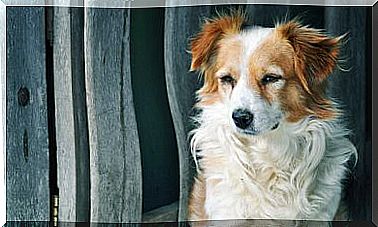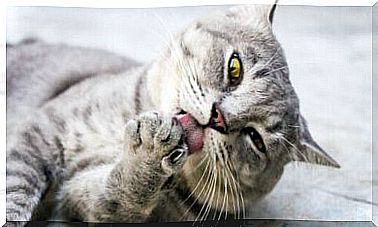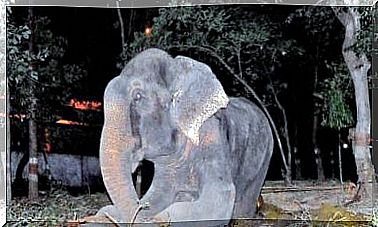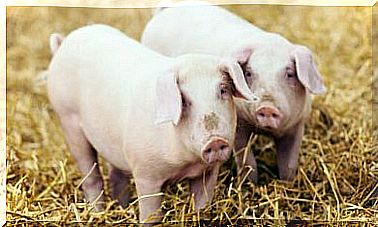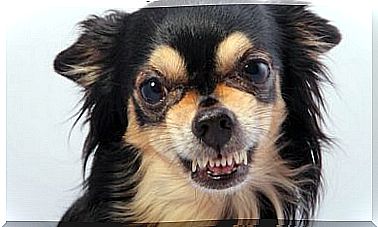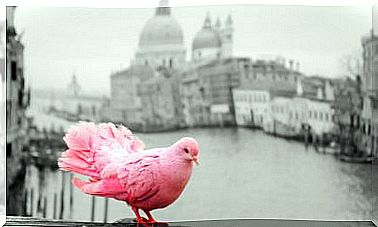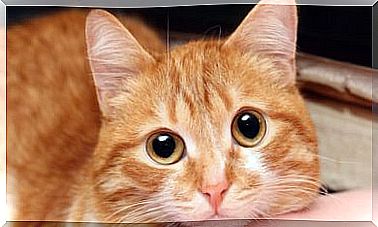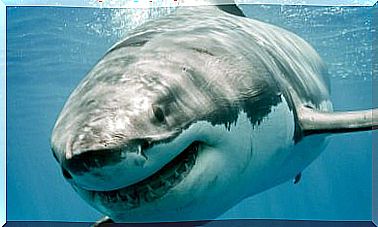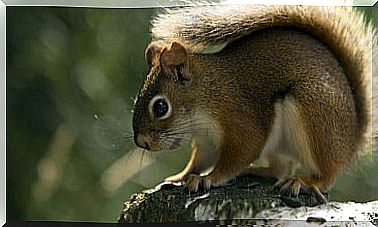Why Are Vultures Bald?
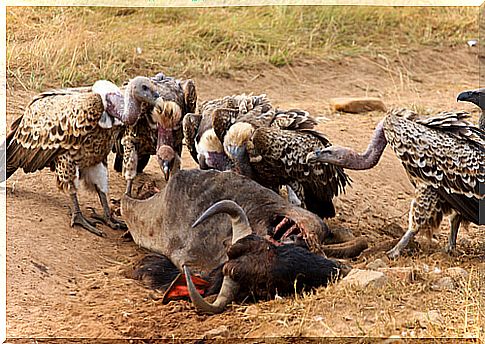
Vultures represent some of the most impressive birds of the Iberian fauna. But they have always been the protagonists of bad omens and dark stories, perhaps because of their appearance. Vultures are bald, ugly, and roam the dead or dying. But why are vultures bald? What if that look was for sheer survival?
Vultures in the Iberian Peninsula
Our skies are populated by numerous species of great emblematic birds. Some of them belong to the group of scavengers, such as vultures.
These birds are characterized by feeding on the corpses of animals in whose hunting they do not usually participate. In this way, they help clean the field of organic debris and carry out part of the ‘recycling’ of the food chain.
In Spain we have four different species of vultures:
- The griffon vulture ( Gyps fulvus ).
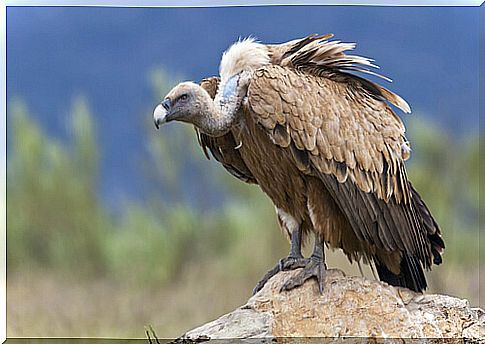
- the black vulture ( Aegypius monachus ).
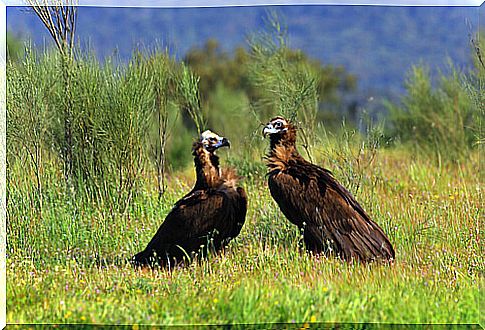
- The bearded vulture ( Gypaetus barbatus ).
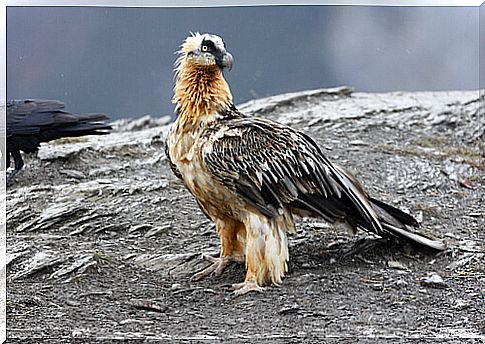
- and the Egyptian vulture ( Neophron percnopterus ).
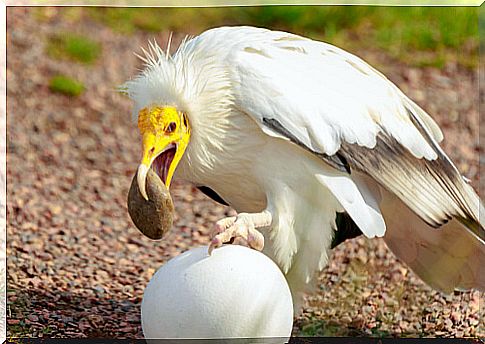
Why are vultures bald?
How a vulture feeds
When the vultures are placed next to the corpse, they insert their beaks in all kinds of cavities and holes, to extract the food. Sometimes they even go so far as to introduce the head and part of the neck in the less ‘hygienic’ areas, such as the rectum and the anus.
This exposes them to a myriad of bacteria that are not only in rotten meat, but in fecal matter, and that would be toxic to any other animal that consumed them.
The ‘baldness’ of most of the vulture species that inhabit Spain is nothing more than an adaptation to this typical scavenger diet. The absence of large feathers on the face and part of the head facilitates access to the interior of the corpse. Otherwise, those feathers would be covered with debris that would make the animal prone to numerous diseases.
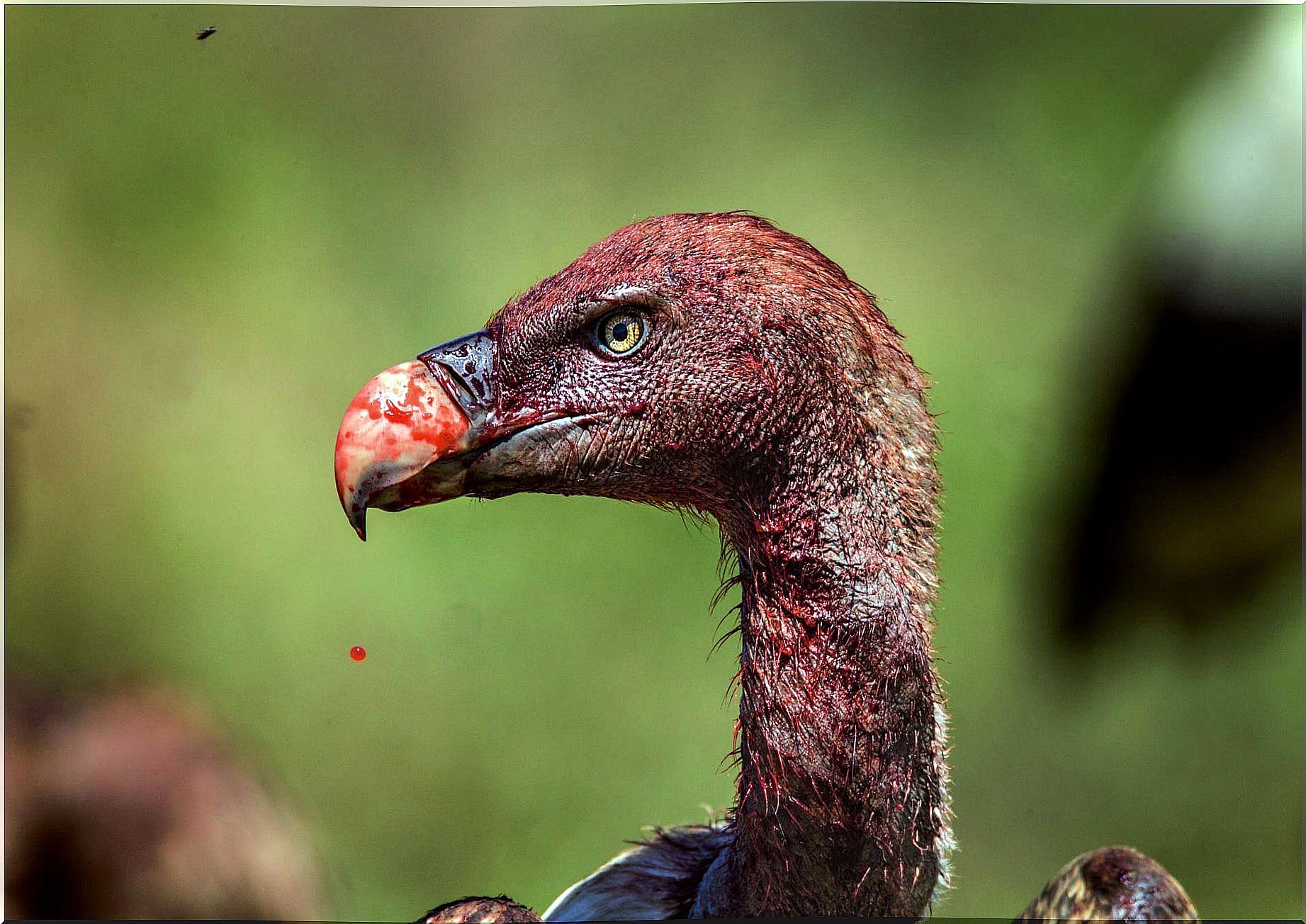
Why don’t vultures get sick from eating decomposing animal remains?
There are numerous studies that attempt to answer this question. Most recognize that any scavenger animal develops, over the years, a digestive bacterial flora capable of neutralizing the microorganisms present in decomposing matter.
People dedicated to the study of scavenger fauna invest a lot of time and resources in knowing how their digestive flora works. And, with vultures, all the answers point to their microbiota acting in the opposite way to that of humans.
While we have a greater number of microbes inside the digestive tract, vultures have it outside. The surface of its face and neck, bare of plumage, have a greater microbiological biodiversity. And this prevents any type of infection or disorder.
In addition, they have developed great tolerance to the access of certain microorganisms to the interior of their digestive system. This is achieved, basically, with a high acidity, which destroys them immediately.
But are they all bald vultures?
If at first we were wondering why, the next question should be whether all species of vultures are. As we saw in the images at the beginning, not all vultures look the same. The ‘baldness’ is characteristic of species such as the black vulture or the griffon, but not in the case of the bearded vulture, for example.
The bearded vulture – or, as it is colloquially known, the ‘bearded vulture’ – does not insert its head into the body of the dead animal. On the contrary, he collects large bony pieces of it and drops them from the heights, against the rocks. This way you can consume more easily digestible pieces of bone, along with the marrow.
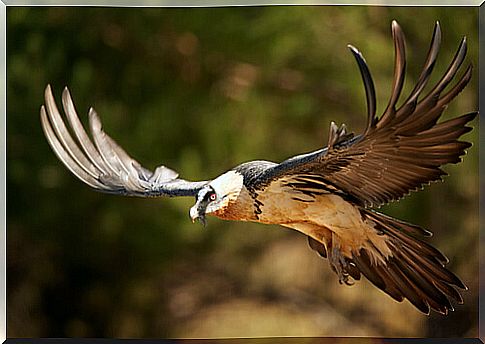
This is why it has abundant plumage on the head and neck. You do not need to have them naked because they are not in danger of being covered with debris that can later contaminate your body.
Now, the next time someone questions the appearance of vultures, tell them the following:
